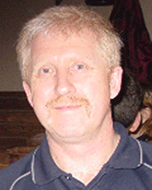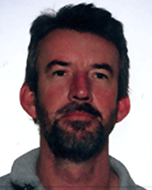Planning and optimisation of large, complex, low pressure gas and water gathering systems*
Robert Pearson A , Shona Mackenzie B , Lyle Burke C and Keith Reimer DA RPS Bob Pearson, P.Eng. Acting Operational Director CSG Services RPS 743 Ann St, Fortitude Valley Brisbane. Email: pearsonb@rpsgroup.com.sg
B Canadian Forest Oil 2500 645 7th Ave S.W.; Calgary; Alberta T2P 4G8 Canada. Email: sfmackenzie@forestoil.ca
C RPS Energy 1400, 800 5th Ave S.W.; Calgary; Alberta T2P 3T6; Canada. Email: BurkeLy@rpsgroup.com
D RPS Energy Liberty Place, 2nd Floor; 1545 Birmingham St.; Halifax; Nova Scotia; B3J 2J6. Email: reimerk@rpsgroup.com
The APPEA Journal 50(2) 683-683 https://doi.org/10.1071/AJ09047
Published: 2010
Abstract
Modelling low pressure gas gathering systems for unconventional gas (UCG) and coal seam gas (CSG) or coal bed methane (CBM) developments is challenged by:
the sensitivity of well performance to system back-pressure;
statistical uncertainties over well performance and areal variability in pay quality;
the rapid build-up of friction with gas velocity;
the rate of conversion from planning assumptions to real data on wells and lines;
commissioning and initial well test reliability issues;
modelling transient well performance using steady state solutions;
unpredictable peak rates and rapid initial declines from those peak rates;
well interference effects;
large development areas with multiple gathering stations;
line looping and bi-directional lines required to accommodate compressor outages; and,
new gas treatment and transmission facilities being added onto existing system during development drilling operations.
Moreover, many of these systems have multiple gas delivery points at different delivery pressures.
Similarly, low pressure water gathering, storage, processing and delivery systems involve features that are not common in conventional water injection or salt water disposal networks, such as:
large numbers of wells tied-in using lines with very low pressure ratings;
water storage ponds or tanks that may involve evaporation losses;
gravity feed or back-flow during intermittent pumping;
infield modifications to accommodate overload situations that had not gone through a formal design change process; and,
intermittent transfer operations to take advantage of reduced power costs during the night, or to avoid peak demand penalties.
This paper will look at two case histories from North America that had to address many of these problems. The objective is to capture lessons learned to assist in the challenges that we are currently facing in ramping-up CSG production in eastern Australia.
Keywords: CSG, CBM, unconventional gas, IPM, integrated production models, system modelling, production optimisation, network models, water lines, compression, pressure losses, gathering systems, slugging, elevation changes, pressure gradients, line looping, node compressors

Bob Pearson, PEng, is Petroleum Engineering Advisor and acting Operational Director for CSG Services for RPS in Brisbane. From 1970 to 1980, he worked for Shell International and from 1980 to 1982 for Petro-Canada. In 1983, he co-founded a petroleum engineering consultancy that is now part of RPS. Bob has extensive experience in field development planning and production optimisation. He is now heavily involved in technical due diligence; peer reviews and technical training for major conventional and unconventional oil and gas developments; as well as the application of new technologies. He has been a Distinguished Lecturer for the SPE. |

Shona is Engineering Manager, and formerly Petroleum Engineering Consultant with RPS Energy. She is a registered Professional Engineer in Alberta. Member: SPE. |

Lyle Burke, PEng, is V.P. Consulting Services and Production Engineering Manager with RPS Energy Canada Ltd. in Calgary. Lyle initially joined Petro-Canada in 1979 as a production operations engineer and worked within a number of petroleum engineering functions. In 1987, he started consulting with APA Petroleum Engineering Inc., which is now part of the RPS Energy Group. He has worked on a wide variety of land and offshore petroleum engineering and field development projects around the globe. Technical highlights include: completion and workover planning for sour, HPHT and CCS well applications; the construction and implementation of a wide variety of integrated production models, workover selection and supervision. He has coordinated and been actively involved in the preparation of several production/completions engineering and operations manuals for several major oil companies, including HPHT Intervention and Operations Manual. Lyle has instructed technical courses for PEICE, SPE (Petroleum Society of CIM) and various oil companies since 1988. |

Keith Reimer is Production Modelling Specialist with RPS Energy in Halifax, Nova Scotia, Canada. His specialty is integrated production modelling (IPM) that combines reservoir, well and facility components into a single model for short-term surveillance or long-range forecasting. Keith holds a BSc in mechanical engineering from the University of Calgary. Member: Society of Petroleum Engineers (SPE), and The Association of Professional Engineers of Nova Scotia (APENS), the Association of Professional Engineers, Geologists, Geophysicists on Alberta (APEGGA), and the Association of Professional Engineers and Geoscientists of the Province of Newfoundland and Labrador (PEGNL). |
References
API Recommended Practice 14E, 1991—Recommended Practice for Design and Installation of Offshore Production Platform Piping Systems. October, 1991, reaffirmed 2000.Chow, C.V., and Arnondin, M.C., 2000—Managing Risk Using Integrated Production Models: Process Description. In: JPT, 52(3), March. SPE 57572-MS.
Cross, H., 1936—Analysis of Flow in Networks of Conduits or Conductors. In: University of Illinois Bulletin (286), November.
Economides, M.J., Hill, A.D., and EHLIG-Economides, C., 1994—Petroleum Production Systems. New Jersey: Prentice Hall.


